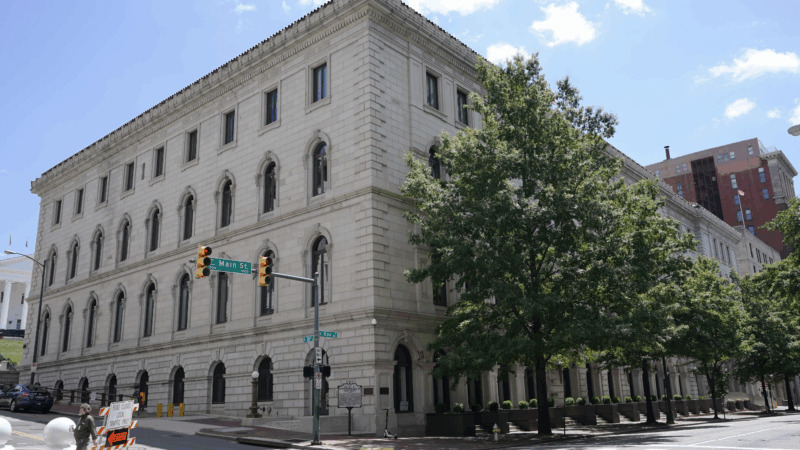DHS ends Temporary Protected Status for thousands from Nicaragua and Honduras
The Trump administration is ending temporary legal protections for tens of thousands of migrants from Honduras and Nicaragua, citing improved conditions in both countries.
Temporary Protected Status, or TPS, is a federal program that provides deportation protection and grants work permits to people from certain nations affected by war or natural disasters. Its revocation is part of a slate of Trump administration actions to limit legal protections for certain categories of migrants, including those with temporary status or people seeking asylum.
Honduras and Nicaragua first received TPS designation in 1999 following Hurricane Mitch, a Category 5 storm that struck Central America and killed over 10,000 people in the fall of 1998.
President Trump revoked the protections for people from those two countries during his first term. The Biden administration later reinstated them. About 4,000 people from Nicaragua and 72,000 people from Honduras had been covered by TPS.
On Monday, the Department of Homeland Security said Secretary Kristi Noem reviewed the conditions in both countries and determined they have recovered enough from the 1999 hurricane for TPS recipients to safely return. The protections are slated to end in September.
The Secretary of Homeland Security has the power to grant TPS to immigrants of a specific country if conditions there “temporarily prevent the country’s nationals from returning safely, or in certain circumstances, where the country is unable to handle the return of its nationals adequately,” according to the agency’s website.
“Temporary Protected Status was designed to be just that—temporary,” Noem said in a press release about the end of TPS for Honduras.
Honduras and Nicaragua are the latest countries to be stripped of TPS designation since Trump’s return to office. The administration has also sought to end protections for thousands of TPS holders from Afghanistan, Cameroon, Nepal, Haiti and Venezuela.
Those attempts have faced some legal pushback. In March, a federal judge in San Francisco paused the administration’s plan to revoke TPS for Venezuelans, though the Supreme Court halted that decision in May. Last week, a federal judge in New York blocked the Trump administration’s attempt to end TPS for Haitians ahead of its scheduled expiration in February, calling it unlawful.
In its announcements, DHS encouraged individuals from Honduras and Nicaragua to self-deport through the Customs and Border Protection program.
“Take advantage of a safe, secure way to self-deport which includes a complimentary plane ticket, a $1,000 exit bonus, and potential future opportunities for legal immigration,” the DHS said in a press release.
Federal judge acknowledges ‘abusive workplace’ in court order
The order did not identify the judge in question but two sources familiar with the process told NPR it is U.S. District Judge Lydia Kay Griggsby, a Biden appointee.
Top 5 takeaways from the House immigration oversight hearing
The hearing underscored how deeply divided Republicans and Democrats remain on top-level changes to immigration enforcement in the wake of the shootings of two U.S. citizens.
Snowboarder Chloe Kim is chasing an Olympic gold three-peat with a torn labrum
At 25, Chloe Kim could become the first halfpipe snowboarder to win three consecutive Olympic golds.
Pakistan-Afghanistan border closures paralyze trade along a key route
Trucks have been stuck at the closed border since October. Both countries are facing economic losses with no end in sight. The Taliban also banned all Pakistani pharmaceutical imports to Afghanistan.
Malinowski concedes to Mejia in Democratic House special primary in New Jersey
With the race still too close to call, former congressman Tom Malinowski conceded to challenger Analilia Mejia in a Democratic primary to replace the seat vacated by New Jersey Gov. Mikie Sherrill.
A daughter reexamines her own family story in ‘The Mixed Marriage Project’
Dorothy Roberts' parents, a white anthropologist and a Black woman from Jamaica, spent years interviewing interracial couples in Chicago. Her memoir draws from their records.





